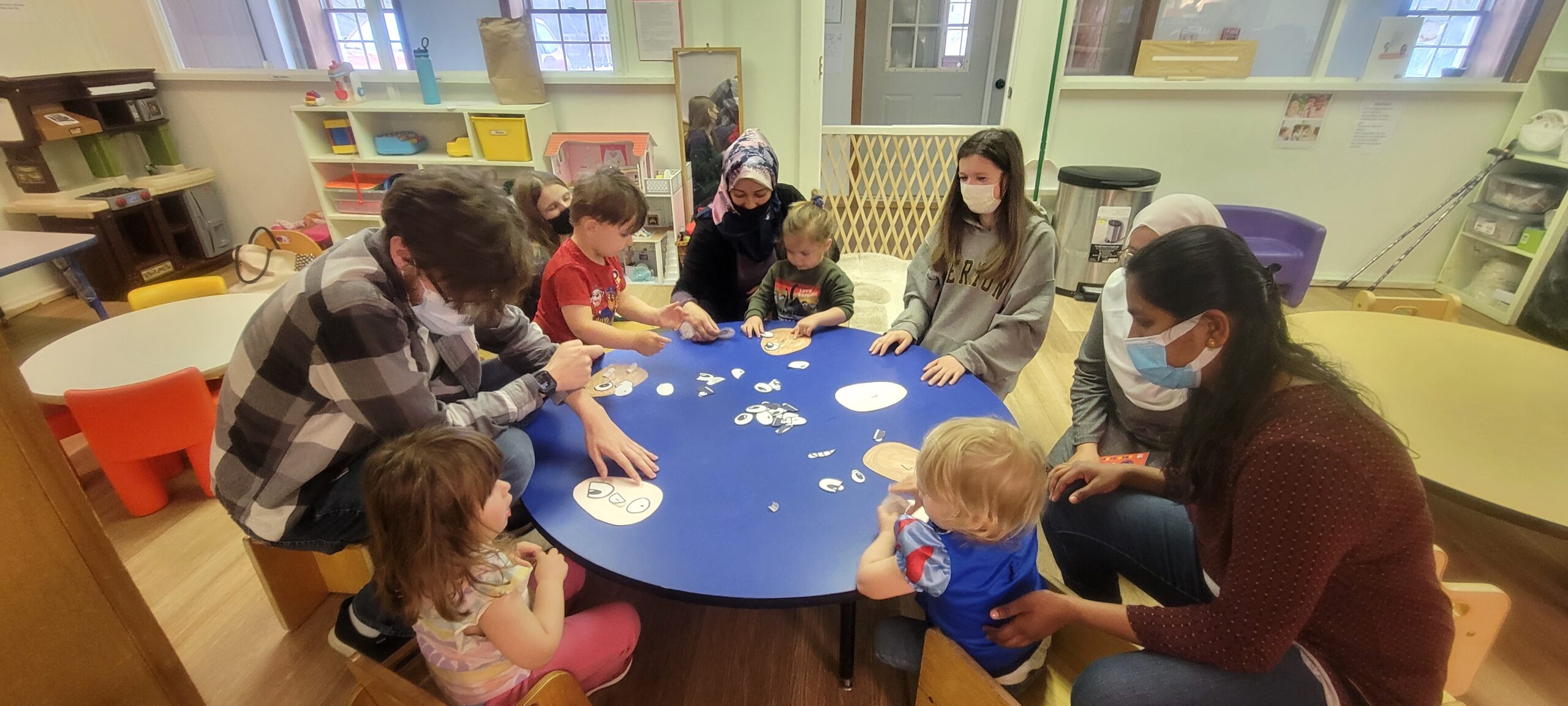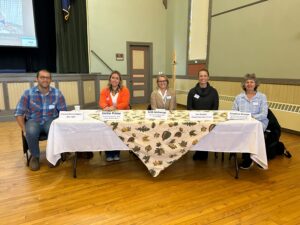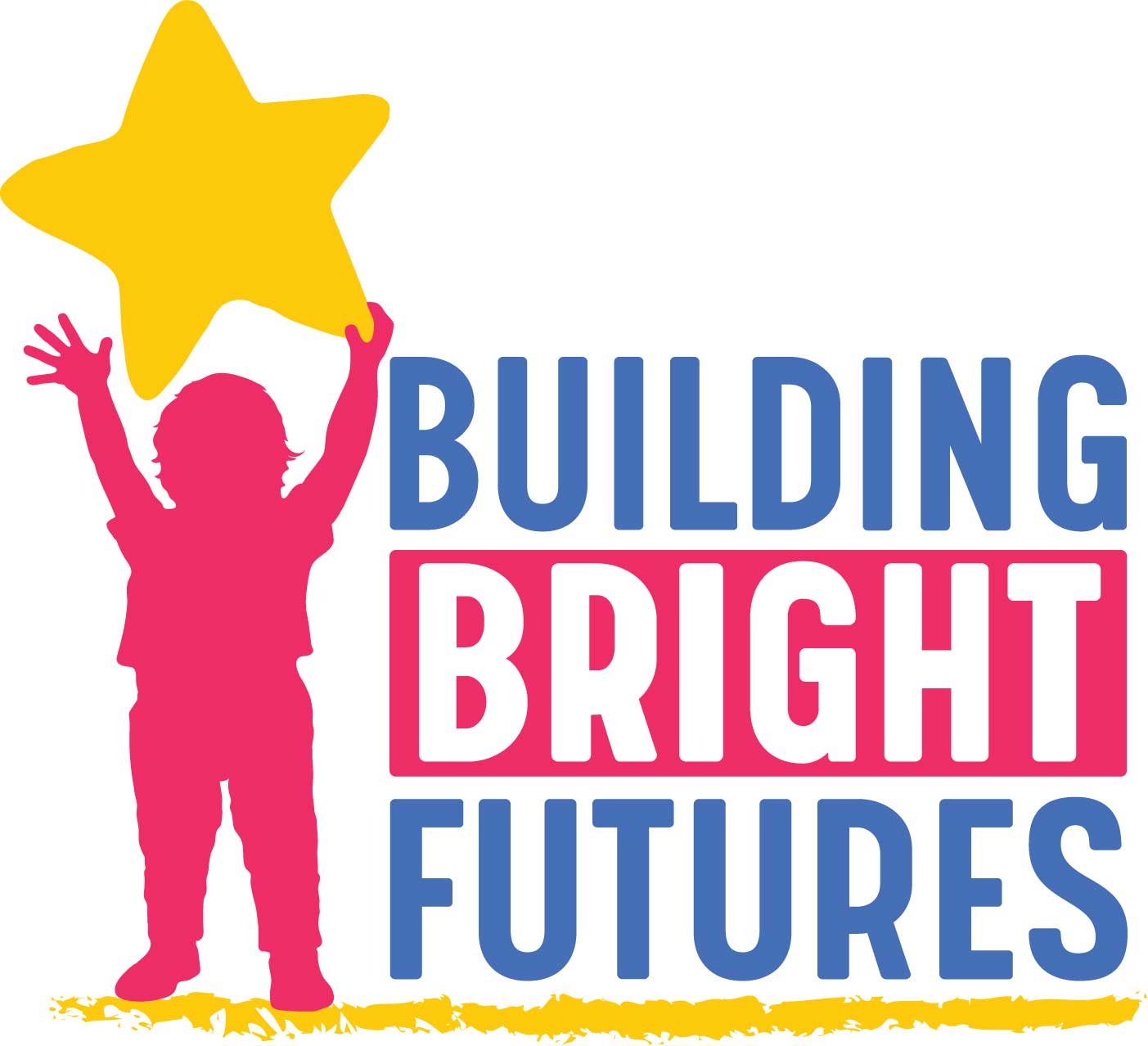At the Rutland County Parent-Child Center (RCPCC), college and high school students are getting hands-on training in early childhood education with the support of a grant from Building Bright Futures’ Vermont Early Childhood Fund. (Applications for the next round of VECF grants are open through Oct. 7, 2022.) This grant is a strategy to address one of the priority issues identified by the Building Bright Futures Rutland Regional Early Childhood Council.
Stephanie Carvey, Early Education Director at RCPCC, said the driving force behind the project is workforce development—specifically, Vermont’s need for more early childhood educators working with young children. She knows many parents and caregivers are having trouble finding preschool or child care spots for their kids, and she said the problem isn’t necessarily having space for those children–it’s finding enough educators to teach them. And of course, making sure those educators are qualified professionals who will teach young children with care, expertise, and dedication.
“I want a more confident and competent workforce,” Carvey said. She knows it can be intimidating to lead a classroom for the first time, particularly if you’re not used to spending time with young children and understanding what they need. Sometimes, students may finish a four-year bachelor’s degree in early childhood education with limited hands-on experience under their belts, but the state of Vermont requires at least one year of in-classroom experience to become licensed as an Early Childhood Education teacher. The pandemic has only made it more difficult for students to get the hands-on skills they need.
“You can look at a textbook all day on human development and curriculum planning and milestone checklists, but it’s different to see a child in action and really see what they’re capable of, and work with them appropriately,” she said.
RCPCC’s early childhood education program teaches children from the age of 6 weeks to 5 years old, in full-day programs 5 days a week, so their classrooms are a perfect opportunity for student teachers to learn. “It’s important to understand where kids are at in order to differentiate what you’re doing to teach these years. In that 6 weeks to 5 years [age range], there’s a lot going on [developmentally]!” Carvey said. What’s more, understanding child development allows RCPCC staff and student teachers to look out for children who may need early intervention services such as speech therapy or occupational therapy.
To equip the future educators of Vermont with the skills and experience they need to succeed, RCPCC is currently supporting three Castleton University students pursuing degrees in early childhood education and/or special education. Each student will complete about 100 hours of hands-on work this semester. RCPCC is training and supporting the students by:
- Providing practical classroom experience. The student teachers rotate among three RCPCC classrooms (at two locations in Rutland and Brandon) to teach kids up to age 5.
- Mentoring through weekly check-ins with RCPCC staff.
- Compensating students with a stipend for completing additional training that may not be part of their degree program but will be required to become qualified as an Early Childhood Education teacher, such as CPR and Mandated Reporter training.
RCPCC is also hosting an apprentice through the T.E.A.C.H. program—a scholarship program offered by the Vermont Association for the Education of Young Children to provide debt-free access to education with the goal of establishing a well-qualified, fairly compensated, and stable workforce for Vermont children. This apprentice gains hands-on experience teaching full-time at the Rutland center while also completing one college class per semester related to early childhood.
In addition, the center hosts high school volunteers from Otter Valley Union High School who are curious about pursuing a career in the field. This volunteer work offers a substantive way for young people to explore their interests and help them decide whether to pursue a degree or training. Carvey also encourages people to explore a community college education–especially since with the 2022 expansion of the 802 Grant Program, Vermonters of any age with a household income of $75,000 or less can attend the Community College of Vermont for free.
Carvey emphasized that this workforce development is not a one-off project, but work that RCPCC plans to continue (and hopes to see replicated in more places). Next year, she hopes to visit Otter Valley Union High School to speak to more students about careers in early childhood education, and possibly host high school students to shadow an RCPCC teacher for a day.

“During my two semesters at RCPCC, I have been doing fieldwork hours for my Early Childhood and Special Education classes. I have enjoyed my time here observing and interacting with the infants and toddlers. I have also enjoyed getting to know my mentor teachers; they have really welcomed me into the classroom and have always been willing to answer any questions I may have.” —RCPCC Student Teacher






